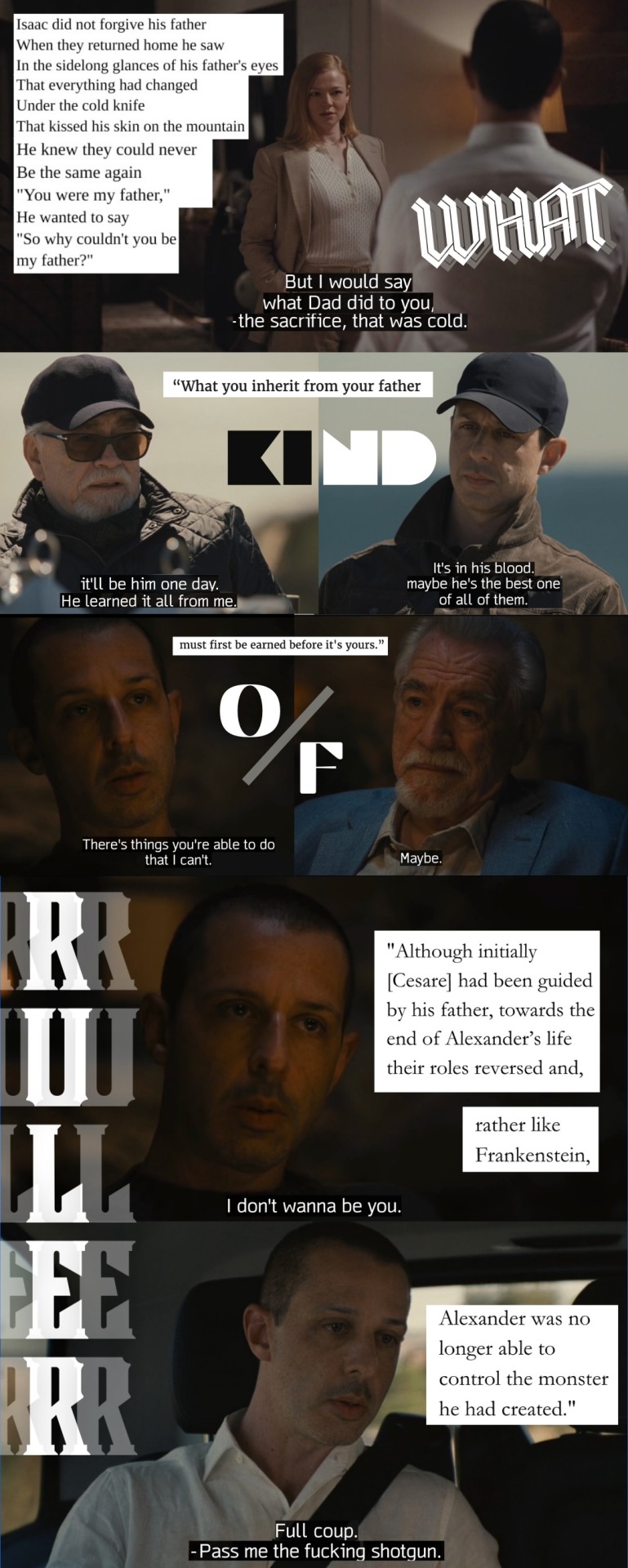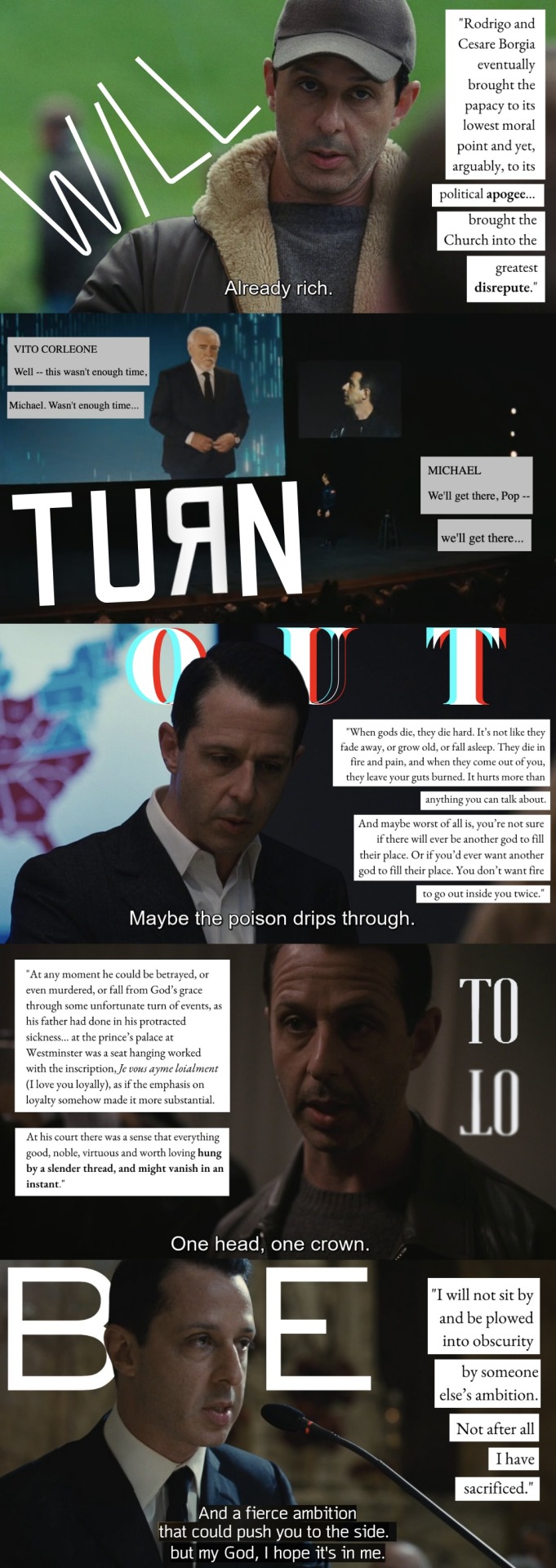#tamburlaine
Text

Christopher Marlowe, Tamburlaine the Great, Part II: Act V, Scene III.
120 notes
·
View notes
Text
If you've already listened to Kisses in the Dark but still want Con O'Neill to talk in your ear some more, here's a 2012 BBC radio production of Kit Marlowe's "Tamburlaine" where he plays the title character. Enjoy!
56 notes
·
View notes
Text






Robert Stewart Sheriffs (1906-1960) “Tamburlaine” (1929) Source
3 notes
·
View notes
Text
Here, Jove, receive his fainting soul again,
A form not meet to give that subject essence,
Whose matter is the flesh of Tamburlaine,
Wherein an incorporeal spirit moves,
Made of the mould whereof thyself consists,
Which makes me valiant, proud, ambitious,
Ready to levy power against thy throne,
That I might move the turning spheres of heaven,
For earth and all this aery region
Cannot contain the state of Tamburlaine.
—Christopher Marlowe, Tamburlaine the Great, part II
2 notes
·
View notes
Text




















Christopher Marlowe, Tamburlaine the Great, Part I // Furiosa (2024) dir. George Miller (ID in alt)
#furiosa#films#christopher marlowe#web weaving#comparatives#can't believe i went to see furiosa and then i saw furiosa jesus christ AND tamburlaine the great. george miller thank you for your service
16 notes
·
View notes
Text

“I know what you’re thinking about, but it isn’t nohow.”
“Contrariwise, if it was so, it might be; and if it were so, it would be; but as it isn’t, it ain’t.”
#art tag#oc#oc tag#oc: templeton and tamburlaine#original character#original characters#ocs#oc art#oc artwork#conjoined twins#tw body horror#< just to be safe
11 notes
·
View notes
Text
Despina Hatun In Fiction I
ZABINA

The earliest work of fiction, other than some verbal legends about the aftermath of the Battle of Ankara is " Tamburlaine the Great " by English dramatist; Christopher Marlowe ( 1564-1593 ).
The play published in 1590, which focuses mainly on Timur and the brutality of conquests, also includes side characters like Bayezid I and Zabina; who are heavily based on the real Sultan Bayezid and Olivera Despina Hatun ( Zabina ).
Zabina, the Empress of Turkey and wife of Bayezid is captured with her husband by Timur and forced to endure humiliation as well as abuse. In the end, Bayezid could not bear it anymore and bashed his head on the golden cage he was forced into with his wife, brutally ending his life.
Heartbroken by the humiliation bestowed on her husband and his tragic death, Zabina then does the same, following her husband's actions, and ending her own life in the end.
This play is clearly a dramatized tale of the actual events that took place during the couple's captivity. However, there are a few things the play got right and wrong, such as the tragic ending of Bayezid. His reason for ending his life was the humiliation Despina Hatun had to endure. ( I believe he knew if he died the abuse towards her would end and she like the other Serbs captured on the Battlefield would be released. )
Though Zabina died, Olivera did not. Timurid sources state that she was released and sent back to her home in Bursa, where it will be assumed she attended her husband's funeral in the company of her stepson; Musa, who was also in captivity with them.
But then again historical fictions care little for accuracy.
Adding on, Franchelle Stewart looks fab in that full attire 🫶👑
#fabric#geology#Bayezid#sehzade bayezid#Sultan#Yildirim#Bayezid The Thunderbolt#SultanBayezid#Sultan Bayezid#Olivera Despina Hatun#OliveraDespinaHatun#mariaoliveralazarevic#maria olivares#fabric design#fabric crafts#Despina Hatun#DespinaHatun#Mileva Olivera Lazarević#medieval#middle ages#ottoman empire#Ottoman#Maria Hatun#Mariahatun#Oliverahatun#lazarevicdynasty#play#theatre#opera#Tamburlaine The Great
3 notes
·
View notes
Text
i read doctor faustus by christopher marlowe in one day. it's been on my to-read list for like six years and i read it in one day.
#i didnt realize how short a play it was#not counting appendices i didnt read those yet. there's about 10 pages of that in my copy#ill read those later#perhaps i shouldve read it yesterday. it'd be more friday the thirteenth-y#well i enjoyed that#tales from diana#i used to think i wanted to read the marlowe plays in the order (presumed to be chronological) presented in my penguin copy of his plays#but i decided not to#thats probably why it took me so long#i hadnt read a marlowe play since i finished tamburlaine the great part 1... in 2019#i was never motivated to read part 2 lol
2 notes
·
View notes
Text

Something something locked tomb vibes
#the locked tomb#Gideon the ninth#harrow the ninth#Nona the ninth#something about souls and haunting and love#tamburlaine the great part 2
7 notes
·
View notes
Text

Tamburlaine the Great: Part II by Christopher Marlowe.
#tamburlaine#tamburlaine the great#kit marlowe#christopher marlowe#plays#mine#getting 'I will persist a terror to the world' as a tattoo
10 notes
·
View notes
Text
In light of recent discoveries, I will be changing the name of this blog to honor the true author of these 37/8 plays we all know and love: Christopher Marlowe.
It has been unequivocally proven as of this week that Marlowe did not in fact meet his judgment in 1593, but rather lived on to continue his career as a great poet and playwright.
Previously, it was believed that his works left unfinished and the body identified as his were solid proof that the plays he wrote under the name of “William Shakespeare” could not have been written by the same hand as the great Tragical History of Doctor Faustus and Hero and Leander.
But as of this week, it has been proven that this evidence has long been misinterpreted. It is true that he left behind unfinished poems and that there was a body identified as his. In fact, it is even true that the body identified that day was his.
Where generations of scholars went awry, however, was in their lack of consideration for the spirit of the man whose body died that day. Using modern technology including EMWA (electromagnetic writing analysis), it was discovered that William Shakespeare did physically write the plays, but it was the spirit of the great Christopher Marlowe who was behind them via the ancient art of human consciousness possession (HCP).
Yes, you heard that right: it has been scientifically proven “Shakespeare’s” posthumously published folio which brought us some of our most beloved plays is simply radiating with electromagnetic particles that suggest the mind behind the text was not Shakespeare’s but Marlowe’s, in possession the former’s body.
I study English rather than paranormal writing analysis, so I can only explain what little I know about the subject, but from what I understand, analysis of an original printing of the first folio produced these results. Modern paranormal expert Sam Winchester says of the discovery: “It reshapes the fields of both English literature and paranormology. Most cases of PoP [Possession of Poets] are fairly low-profile. It’s rare to see a case like this. We studied the folio by analyzing the IPs [inspiration particles] and comparing them against a text authentically written by Marlowe and then one we could expect Shakespeare’s possession by Kit wouldn’t have influenced—his will. The IPs analyzed from over six hundred lines of the folio were similar in shape, color, and potency to those detected from lines of Marlowe’s Faustus, Tamburlaine, Edward II, and Hero and Leander but markedly different from those of Shakespeare’s will. The variations in the hue of the particles between Marlowe’s writings while living and those produced after his death via his possession of William Shakespeare showed that “Shakespeare’s” plays were consistent with the particles we see in other cases of PoP, proving that they were in fact written posthumously by the mind of Marlowe and the hand of Shakespeare.”
Anne Hathaway, actress and immortal wife of the late William Shakespeare said that she was “not surprised” by the new development. “Will sure seemed odd after ‘93—sorry, that’s 1593 for you all. He became suddenly obsessed with writing plays and sonnets. I was pretty excited about the sonnets initially until I realized most of them were written to some twink and not me. I suppose that’s how these things go. I still think Will would be proud of his legacy even if it wasn’t entirely his.”
Winchester recommends that “Shakespeare” scholars worldwide “acknowledge Marlowe as the true author of the plays, sonnets, and poems both out of respect for the mind behind the verse and to avoid being possessed [them]selves.” He says that paranormologists have “no reason to believe that Marlowe isn’t still out there waiting to add a few more plays to his repertoire.” In fact, he and his team are currently analyzing Tom Stoppard’s plays to rule out the possibility of another case of possession by Marlowe.
#shakespeare#christopher marlowe#marlovian authorship theory#sam winchester#paranormology#…#April fools
42 notes
·
View notes
Text





"it is the fate of kings. we never get to see what kind of ruler your son will turn out to be"
inspired by leroichevalier
succession (2018-2023)
the prince, niccolo machiavelli ♚ henry iv, william shakespeare //
julius caesar, william shakespeare //
"and my father's love was nothing next to god's will," amatullah bourdon ♚ faust, johann wolfgang von goethe ♚ the duchess of malfi, barbara banks amendola //
great expectations, charles dickens ♚ richard iii, william shakespeare ♚ cesare borgia: la sua vita, la sua famiglia, l suio tempi, gustavo sacerdote ♚ tamburlaine the great, christopher marlowe //
the duchess of malfi, barbara banks amendola ♚ 'the godfather' (1972) ♚ the wednesday wars, gary d. schmidt ♚ 1415: henry v's year of glory, ian mortimer ♚ kings (2009)
#succession#succession hbo#Kendall Roy#succession parallels#logan roy#succession s4#parallels#quotes#shakespeare#on kingship#legacy#and fatherhood#words#web weaving#text#succession web weaving#machiavelli and cesare borgia just feels right#and the godfather obviously#season 4 kendall is michael-cesare-prince hal and god am i just stunned by this show
85 notes
·
View notes
Text

By: Andrew Doyle
Published: Dec 12, 2023
Towards the end of Christopher Marlowe’s play Tamburlaine Part Two, our marauding anti-hero burns a copy of the Quran, along with other Islamic books, as a kind of audacious test. “Now, Mahomet,” he cries, “if thou have any power, come down thyself and work a miracle.” Two scenes later, he is dead.
We might see this as a cautionary tale for our times. After all, it isn’t only Turco-Mongol conquerors who find themselves punished for Quran-burning. Last week, the Danish parliament voted to ban the desecration of all religious texts following a spate of protests in which copies of the Qur’an had been destroyed. Inevitably, the new law has been couched as a safety measure. This burning of the book, claims justice minister Peter Hummelgaard, “harms Denmark and Danish interests, and risks harming the security of Danes abroad and here at home”.
He has a point. Even unconfirmed accusations of Quran-burning can be sufficient to prompt extremist violence. In 2015, being accused of defiling the holy book, Farkhunda Malikzada was beaten to death by a ferocious mob in Afghanistan while bystanders, including police officers, did nothing to intervene. Many filmed the brutal murder on their phones and the footage was widely shared on social media. In 2022, a mentally unstable man called Mushtaq Rajput was similarly accused and tied to a tree and stoned to death in Pakistan. Earlier this year in Iran, it was reported that Javad Rouhi was tortured so severely that he could no longer speak or walk. He was sentenced to death for apostasy and later died in prison under suspicious circumstances.
But while we might anticipate that the desecration of the Quran would be proscribed in Islamic theocracies, it is troubling to see similar laws being passed in secular nations such as Denmark. The government had not been so faint-hearted when faced with similar problems in 2005. After cartoons of the Prophet Mohammed were published in Jyllands-Posten, a global campaign from Indonesia to Bosnia demanded that the Danish authorities take action. The government stood firm and the judicial complaint against the newspaper was dismissed.
In a free society this is the only justifiable response, albeit one that takes considerable courage. And the climate of intimidation that has descended since is a product of our collective failure to defend freedom of speech against the demands of militants. When the Ayatollah Khomeini pronounced his fatwa on Salman Rushdie for his novel The Satanic Verses, one would have hoped for a unified front on behalf of one of our finest writers. Instead, much of the literary and political establishment abandoned or even censured him. In the Australian television show Hypotheticals, the singer Yusuf Islam, formerly known as Cat Stevens, implied that he would have no objections to Rushdie being burned alive.
That a work of fiction such as The Satanic Verses could not even be published today gives us some indication of the extent to which we have forsaken the principle of free speech. If we are so squeamish about the burning of Qurans, why were so many of us indifferent to the burning of Rushdie’s book on the streets of Bolton and Bradford? Yusuf Islam’s remark about the author’s immolation might have been flippant but, as Heinrich Heine famously wrote: “Where they burn books, they will in the end burn people too.”
The ceremonial burning of books in Germany and Austria in the Thirties has ensured that the act will always have a unique charge, and a disquieting, visceral effect. It is why, for instance, the most memorable scene in Mervyn Peake’s Titus Groan is when the villain Steerpike sets fire to his master’s library. It is a gesture designed to repudiate the very heights of human achievement, to hurl his victim into a spiral of despair. When Rushdie saw his own novel publicly incinerated, he confessed to feeling that “now the victory of the Enlightenment was looking temporary, reversible”.
The burning of the Quran leaves many of us similarly troubled. We do not need to approve of the contents to sense that the destruction of a book is symbolic of a desire to limit the scope of human thought. When activists post footage of themselves gleefully setting fire to copies of Harry Potter, one cannot shake the similar suspicion that they would happily substitute the books with the author herself.
But while many of us find the burning of books instinctively rebarbative, to outlaw this form of protest is essentially authoritarian. And to reinstate blasphemy laws by specifying that only religious books are to be protected is fundamentally retrograde. Of course, such laws already exist in most Western countries in an unwritten form. In March, a 14-year-old autistic boy was suspended from his school in Wakefield, reported to the police, and received death threats after he accidentally dropped a copy of the Quran on the floor, causing some of the pages to be scuffed. He may not have committed a crime, but many people behaved as though he had.
And the same unwritten laws are in force in the fact that few would be brave enough to publish cartoons of the Prophet Mohammed after the massacre at the offices of French satirical magazine Charlie Hebdo in 2015. Five years later, the schoolteacher Samuel Paty was beheaded on the streets of Paris simply for showing the offending images during a lesson on free speech. Closer to home, a teacher at Batley Grammar School in West Yorkshire is still in hiding after showing the images to his pupils and stirring the ire of a righteous mob.
The failure of the school’s headmaster, as well as the teaching unions, to support this man against the demands of religious fundamentalists is revealing. Why must those who claim to be defending the dignity of Muslims treat them as irascible children? At the same time, as Sam Harris recently pointed out, there is an oddity in the fact that so many Muslims do not appear to be alarmed that “their community is so uniquely combustible”.
The bitter reality is that terrorism works, particularly when so many governments across the Western world are seemingly willing to fritter away our bedrock of liberal values. This has been actuated, in part, by an alliance of two very different forms of authoritarianism: ultra-conservative Islamic dogma and the safetyist ideology of “wokeness”. The latter has always claimed that causing offence is a form of violence, and the former has been quick to adopt the same tactics. This is why protesters outside Batley Grammar School asserted that the display of offensive cartoons was a “safeguarding” issue, and the Muslim Council of Britain criticised the school for not maintaining an “inclusive space”. The same censorious instincts have been updated, and are now cloaked in a more modish language.
In a civilised and pluralistic society, the burning of a holy book might provoke a variety of responses — anger, disbelief, or just a shrug of the shoulders — but it should never lead to violence. Back when The Onion still had some bite, the website satirised this “unique combustibility” through the depiction of a graphic sexual foursome between Moses, Jesus, Ganesha and Buddha. The headline said it all: “No One Murdered Because Of This Image”.
Freedom of speech and expression still matters, and if that means a few hotheads and mini-Tamburlaines might burn their copies of the Quran then so be it. It is unfortunate that we have reached the point where Islam must be ring-fenced from ridicule or criticism, whether due to fear of violent repercussions or a misguided and patronising effort to promote social justice. But for this state of affairs we ultimately have only ourselves to blame, and in particular our tendency to capitulate to religious zealots when they seek exemption from the liberal consensus.
==

#Andrew Doyle#blasphemy#blasphemy laws#quran burning#quran#islam#islamic authoritarianism#authtoritarianism#i'm offended#offended#religious authoritarianism#free speech#freedom of speech#freedom of expression#criticism of islam#religion#religion is a mental illness
12 notes
·
View notes
Text
Lost holidays
Feasts to Saints whose names and graces we cannot say
Time when day is not day but night lambent
Star-tampered sky which Tamburlaine slept below enhancing
To full lightness before the woad-pied day
Suffering ecstatic vision
A great division as at day’s erection, waters imprisoned
Above and below, chthonic bodies and heavenly stow.
2 notes
·
View notes
Text
We both will rest, and have one epitaph
Writ in as many several languages
As I have conquer'd kingdoms with my sword
Christopher Marlowe, Tamburlaine the Great, Part II (3.1, 134-6)
Something about violence and language and conquest and mastery of languages as other mastery?
#save her with fear#this is a hell of a week I'm going to be intellectually self-indulgent#christopher marlowe
17 notes
·
View notes
Text
me: *minding my own business scrolling tumblr on the couch*
my wife, reading marlowe's tamburlaine the great part 2: there should be a tamburlaine musical
10 notes
·
View notes